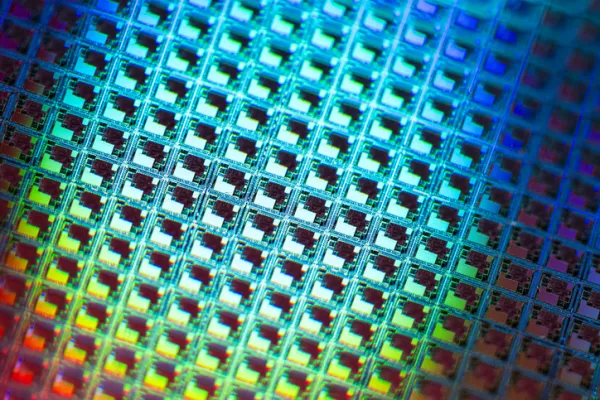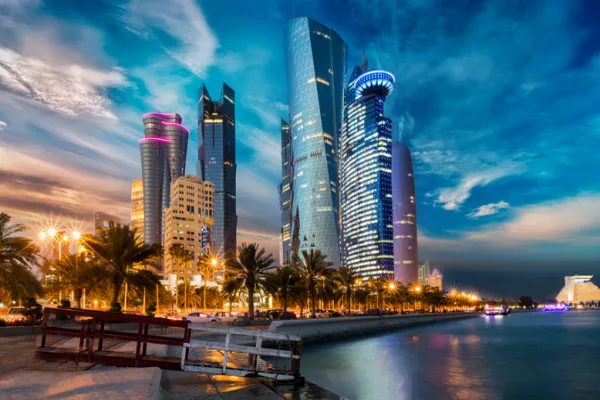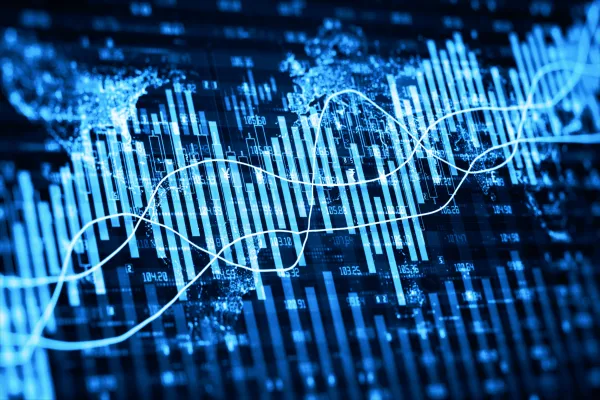When Western leaders agreed four years ago to hold the 2006 Group of Eight summit meeting in Russia, the move seemed like little more than a geopolitical curiosity: a sop to Russian leader Vladimir Putin to recognize his contribution to U.S. President George W. Bush’s war on terror and appease Russian sensibilities over the loss of the country’s superpower status. No one thought it would make Moscow an equal player on the global stage.
When the G-8 leaders gather in Putin’s hometown of St. Petersburg in July, they will find a dramatic change in the story line. President Bush, Prime Minister Tony Blair of the U.K. and other leaders will encounter a supremely confident and assertive Russian president rather than a deferential, skittish wanna-be. Armed with his country’s massive oil wealth, Putin is determined to use the meeting to restore Russia’s preeminence and advance the country’s political and economic interests, most notably in energy.
Already this year, Russia has used its energy clout to reassert influence over its near neighbors, particularly Ukraine, and to deepen relations with Iran, to the frustration of Bush, who wants to isolate Tehran in an effort to thwart its nuclear ambitions. It has also developed strategically important commercial interests in the West through state-owned oil and gas giant Gazprom. Putin’s newfound swagger threatens to heighten tensions between Russia and the West, as well as to widen differences among Western leaders over issues like Iran and Western Europe’s growing dependence on Russian gas supplies. Long gone are the pity and condescension that marked the West’s relations with Russia under Putin’s predecessor, Boris Yeltsin.
The difficulty of adapting to the new power relationship was made clear in May when U.S. Vice President Dick Cheney, speaking in the former Soviet state of Lithuania, upbraided Moscow for practicing “intimidation and blackmail” in briefly cutting off gas supplies to Ukraine earlier this year. Putin responded sharply in his annual state of the nation address to Parliament a week later, calling for a stronger military to safeguard Russia in a world where “Comrade Wolf . . . eats without listening, and he’s clearly not going to listen to anyone” — an apparent reference to the U.S. invasion of Iraq.
“The U.S. has yet to wake up to the fact that Russia has chosen an independent way of formulating domestic and foreign policy,” says Roland Nash, chief strategist at Renaissance Capital in Moscow. “Over the past 15 years, Russia had no strength to play its traditional role in geopolitics. But that’s a unique period that is now over.”
Russia’s new geopolitical assertiveness is matched by the growing clout of its commercial enterprises. Companies from the oil sector to fast-growing consumer sectors have been rushing to Western markets to raise equity to finance their continued expansion, making Russia the second-biggest source of IPOs this year among emerging markets, after China (see story, page 39). Foreign appetite for these IPOs, in turn, reflects the increasingly professional management skills of leading Russian business leaders, whom Institutional Investor ranks in this issue.
Russia has plenty of reasons for wanting to throw its weight around in a way not seen since the Cold War. Since Putin became president on New Year’s Eve in 1999, the country has transformed itself from a troubled economy dependent on the largesse of the International Monetary Fund and the World Bank into an oil-fueled economic dynamo with $300 billion in reserves.
Gross domestic product, which shrank every year from 1991 to 1998, has grown 60 percent in real terms since 2000, with oil revenues increasingly recycled into a burgeoning consumer-oriented economy. The government has paid off much of its external debt early. Russian bank deposits have swelled by $200 billion as capital flight has all but ended and ordinary citizens have taken savings out of their jam jars. Oligarchs are investing in Russian industrial and consumer assets rather than Cyprus bank accounts and European football teams. European companies have jumped in with investments of their own, including E.ON, which owns 6 percent of Gazprom; Volkswagen, which is building a E400 million ($510 million) auto assembly plant; and IKEA, which has opened three stores in Russia and plans 22 more.
“On the fundamentals, Putin is the most successful Russian ruler since Peter the Great,” asserts Igor Yurgens, vice president of the Russian Union of Industrialists and Entrepreneurs, a leading business lobby group.
Putin’s electorate seems to share this enthusiasm broadly. The president’s approval ratings still hover around 70 percent, the envy of any G-8 counterpart, and six Russians in ten would welcome an amendment of the constitution to enable him to serve a third term after his current one expires in March 2008, according to a June poll by the Moscow-based Levada Center.
As he has asserted his nation’s newfound economic independence, Putin has simultaneously shattered any illusion that Russia would readily embrace American- or European-style democracy. With a stroke of a pen two years ago, the president eliminated elections for the leaders of Russia’s 87 regions. Foreign Minister Sergei Lavrov chose to formalize Russia’s distinctive political orientation — which Kremlin-friendly intellectuals call “managed democracy” or “authoritarian modernization” — when his country assumed chairmanship of the Council of Europe in May. Lavrov told his European colleagues, “The pace and content of realizing the democratic choice must match the demands of social development and the readiness of society for change.”
Putin has crossed Washington on a series of strategic issues in pursuit of Russian interests. His government has sold billions of dollars worth of arms to China in defiance of a U.S. embargo, frustrated the Bush administration’s attempt to win United Nations support for sanctions against Iran over its nuclear program, and used gas to rattle the Ukrainian government of President Viktor Yushchenko and discourage his attempt to bring the country into the North Atlantic Treaty Organization. Yushchenko was forced back into an uneasy power-sharing agreement with Prime Minister Yulia Timoshenko, who proclaims herself neutral on NATO membership but promises to take a tougher stance with Moscow on gas prices.
“We cannot see Yushchenko’s takeover of power as anything other than a coup,” Alexander Kozlovsky, deputy chairman of the Russian Duma’s foreign relations committee and a member of the pro-Kremlin United Russia party, tells II. “Now he wants to join NATO. But we have to ask, If the Warsaw Pact is gone but NATO still exists, then who is the alliance against?”
Since russia took over the G-8 presidency in January, the Kremlin PR machine has been working overtime. With a mixture of pride and defensiveness, officials have blown up the meeting’s significance to near-Olympic proportions, seeing it as an opportunity to show the world that Russia belongs at the top table. As Arkady Dvorkovich, the suave, American-educated economist who heads the “expert directorate,” or council of advisors, in Putin’s administration, put it at an investors’ conference in Moscow in June, “Russia’s chairmanship of the G-8 is a sign that Russia is accepted as an equal partner.”
The country’s overriding goal as summit host — which Putin describes on his G-8 Web site’s welcome page — is to put its stamp on a new era of global “energy security” by ensuring the “stabilization of the global energy markets, development of renewable resources and protection of the environment.” In particular, the president has been pressing for a grand entente that would give Western companies a subsidiary role in developing Russia’s enormous natural-gas deposits (fully one third of global reserves) in exchange for allowing Gazprom and other Russian state entities to buy downstream assets in Europe.
The president outlined his vision in a meeting with European Union leaders in May at his dacha in Sochi, a Russian resort city overlooking the Black Sea — the Kremlin equivalent of Bush’s Crawford, Texas, ranch. In a break from talks with European Commission President José Manuel Barroso, EU foreign policy chief Javier Solana and EU council president and Austrian chancellor Wolfgang Schüssel, Putin called for a “strategic energy agreement” that would give European companies access to the “holy of holies” — Gazprom’s massive untapped gas reserves. In return the Russian energy giant sought a green light for Russian entities to buy into Western distribution networks. Rumors that Gazprom was eyeing big U.K. gas distributor Centrica earlier this year provoked a barrage of anti-Russian comments in the British press and a promise from the Department of Trade and Industry to subject any such deal to “robust scrutiny.”
Although the Sochi meeting failed to produce an agreement, both sides came out smiling. A shirt-sleeved Putin enjoyed a rare folksy moment with journalists, using a childhood analogy to characterize the meeting. “This is like when you go out to the playground when you’re a kid and somebody asks for some of your candy. Naturally, you grab it and say, ‘What are you going to give me?’”
Russia and the West remained deadlocked over energy access at the meeting of G-8 finance ministers in St. Petersburg in June. French Finance Minister Thierry Breton led a Western push to persuade Russia to ratify the Energy Charter Treaty, a document Yeltsin signed along with 50 other nations in 1994. The charter contains a key clause requiring any member to allow international access to “unused” gas pipeline capacity within its borders. “If these principles are recognized, they should be applied,” Breton said after the meeting.
Those rules would pose a direct challenge to Gazprom’s role as an arm of Russian energy policy, however. Gazprom CEO Alexei Miller, a Putin appointee, memorably twisted a giant valve shut on national television to symbolize the cutoff of gas supplies to Ukraine last winter. Miller also pressed Gazprom’s European investment ambitions in April by warning that the company might shift its gas supplies toward China or North America if EU governments didn’t open their markets.
There are notable differences of opinion about Russia within the West that Putin can exploit. The hard-line view, as expressed bluntly by Cheney, emanates from Washington and emphasizes concerns about Russia’s perceived retreat from democracy, its potential to use energy as a weapon against Western Europe and Moscow’s efforts to exert influence in places like Ukraine and Iran. That wariness is shared to some extent by the U.K., whose chancellor of the Exchequer, Gordon Brown, raised new doubts about a possible Gazprom bid for Centrica on the eve of the finance ministers’ meeting in St. Petersburg last month. “With Gazprom there are questions about politics as well as economics,” he said.
But many European capitals take a softer line. The picture of European accommodation is Gerhard Schöder, who barely a month after quitting the German chancellor’s residence last fall signed on as chairman of a new consortium to pipe Russian gas under the Baltic Sea to Germany.
“The U.S. and some EU member states are talking about isolating Russia, but we think painting it into a corner would be a self-fulfilling prophecy,” an EU diplomat in Moscow told II. “We see Russia’s point that there’s no reason it should give Ukraine a gas subsidy of $3 billion to $5 billion a year. That dispute has not substantially damaged the reputation of Russia as a reliable supplier.”
The EU is also Russia’s dominant commercial partner, accounting for more than half of Moscow’s trade beyond the boundaries of the former Soviet Union, compared with about 5 percent for the U.S. European companies have led the way in lifting foreign direct investment in Russia from next to nothing in the late 1990s to $13 billion last year, according to the World Bank.
“I guess I don’t pay much attention to what the Wall Street Journal or Financial Times are saying about our democracy because I deal with living people — people who are working here every day and making investments,” Kirill Androsov, a deputy minister of economic development and trade, told II.
Putin sought to strengthen his hand before the summit by demonstrating that he has cards to play outside the West. He met twice in the space of three weeks in May and June with Chinese President Hu Jintao and came away with a ringing endorsement for a Russian Ostpolitik that is best symbolized by a new oil pipeline between the two countries that Russia has promised to start building soon. “While Cheney is shaking his finger at Russia, Hu announces that relations have never been better and Russia is a vital strategic partner,” observes Alasdair Breach, chief of research at UBS in Moscow. “Do you think the Chinese smell the coffee?”
Moscow’s engagement of Iran, the world’s second-biggest holder of gas reserves after Russia, is also about much more than simply sticking a finger in America’s eye. The decades-long U.S. economic embargo on Tehran offers a golden opportunity for Moscow to lay oil and gas transport routes from Iran to Asia across Siberia, a coup that almost any future Russian president is bound to pursue. “The Kremlin will hold on to Iran until the last,” says Viktor Kremenyuk, deputy director of the Institute of the U.S.A. and Canada in Moscow.
In the long run Russia’s relations with the West and its role in the G-8 will depend heavily on how it resolves the internal contradictions of the Putin era. The president has set the stage for economic revival in recent years by restoring fundamental order in Russia’s society and economy. Competent officials led by Finance Minister Alexei Kudrin and central bank chairman Sergei Ignatiev have put the economy on sound footing, clamping down on inflation, eliminating the deficit and building a massive stabilization fund with the country’s windfall oil revenues. With stability restored, the country’s entrepreneurial class has begun to spread the wealth and build the basis of a modern, consumer-driven economy.
“Under Yeltsin the federal government couldn’t plan beyond six months in advance, never mind private business,” says Alexander Goncharuk, president of AFK Sistema, a Moscow-based conglomerate that owns Russia’s leading cell phone operator, Mobile TeleSystems, and one of the country’s top five insurers, Rosno. “Now we can make three-year strategic plans.”
It is difficult to find any nostalgia within Russia for the 1990s. “Unfortunately, our people associate democracy with the chaos, theft and totally unregulated behavior of the Yeltsin years,” says Ella Pamfilova, a social welfare minister in Russia’s early-1990s reform governments who is now organizing the Civil G-8, a meeting of nongovernmental organizations parallel to the main summit, as chief of Putin’s Council on Civil Society and Human Rights.
Order has come at a price, however. Putin has concentrated political power at the Kremlin within a clique of old friends. Most of the country’s important “strongmen,” or siloviki, worked with Putin in the KGB, and Kudrin and other technocrats were colleagues from the early 1990s, when Putin worked as deputy to the first democratically elected mayor of St. Petersburg, Anatoly Sobchak.
Not coincidentally, Russia plunged to 126th place out of 158 in Transparency International’s 2005 Corruption Perceptions Index, from 90th a year earlier and 79th in 2001. That ranks it roughly on par with Niger and Sierra Leone. And that low ranking goes to a state that is renationalizing a lengthening list of “strategic” businesses — starting with Mikhail Khodorkovsky’s Yukos Oil Co. and its sister oil company Sibneft, and moving on last year to top Russian automaker AvtoVAZ and electric turbine maker Power Machines.
It remains to be seen how long the vibrant, cosmopolitan side of Russia’s economy can co-exist with its bureaucratic, parasitic side. But support for Putin’s authoritarian brand of politics runs deep. Two voters in five consider “restoring Russia’s status as a great power” to be an urgent public priority, compared with 12 percent who opt for “restoring democracy and freedom of speech,” according to a Levada Center survey in May. As long as such sentiments persist, Russia is unlikely to become more pliant in the face of Western demands after Putin steps down.
“Putin has moved politics back in the direction of the majority, and anyone who doesn’t admit that is stuck in the past,” says a source with unquestioned pro-Western credentials, former Soviet leader Mikhail Gorbachev, speaking at a recent Moscow political conference.
Or as Yurgens of the industrialists’ union puts it: “Ever since the building of St. Petersburg in 1703, Russia has had a love-hate relationship with the West. I guess that is the way it will continue.”





